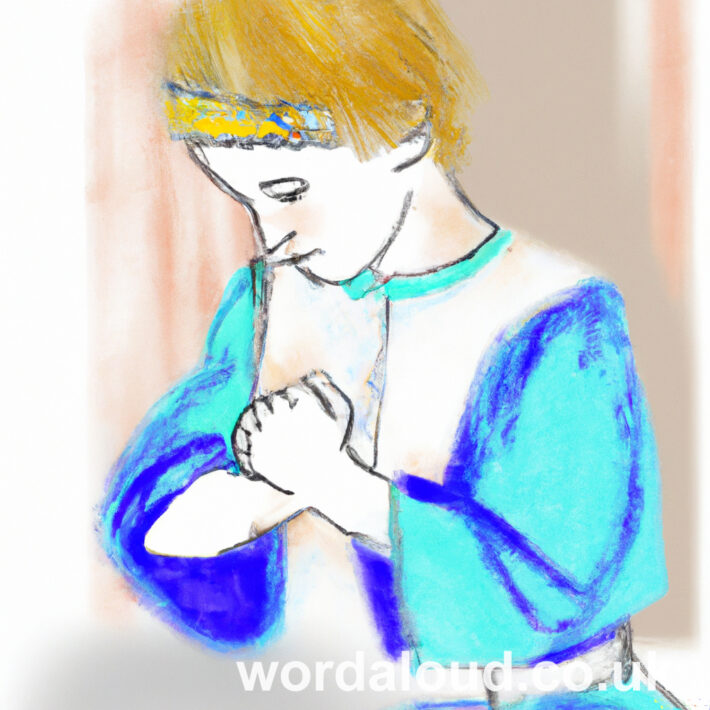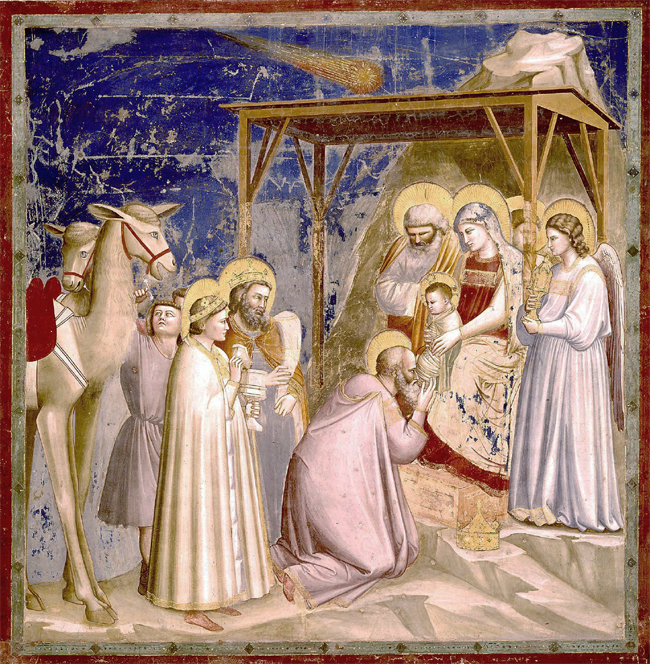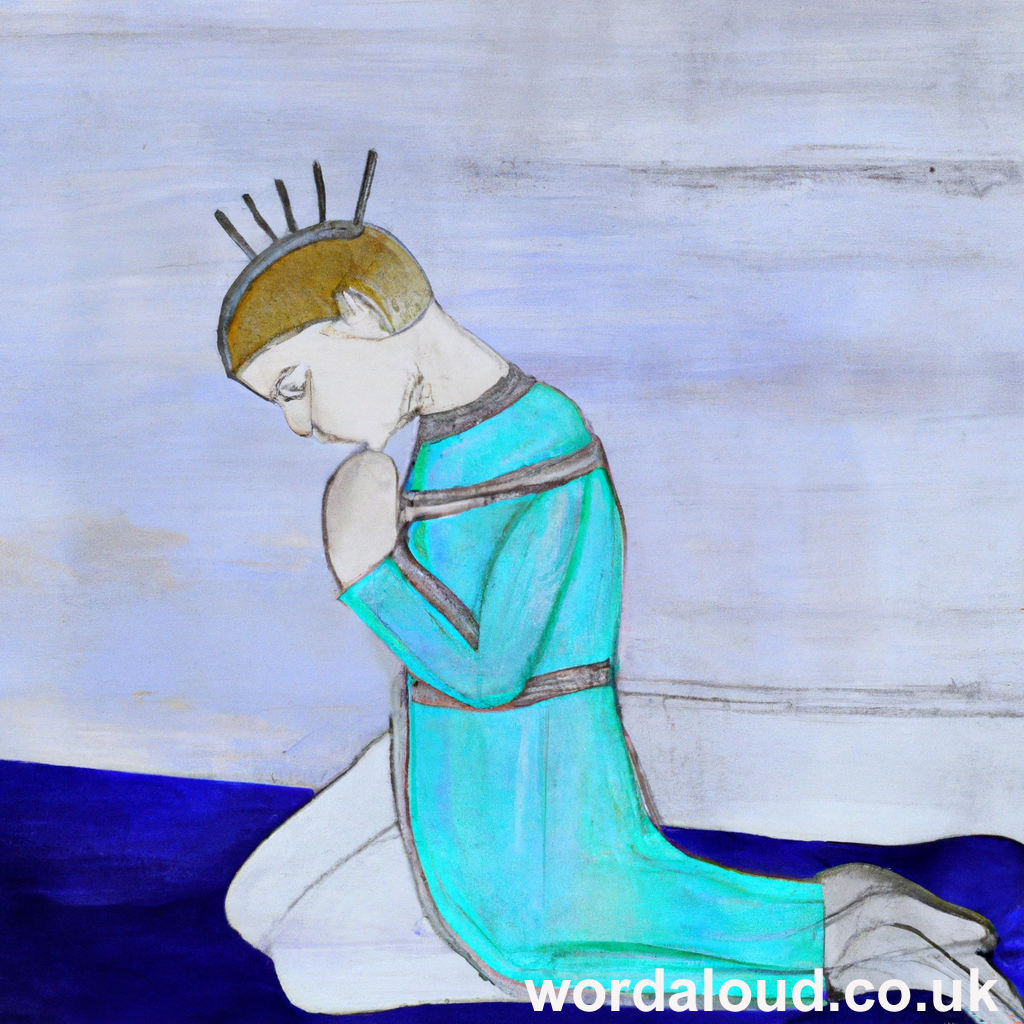Christian Art | Prayer With Jesus | Psalms | Praise The Judge Of The World | King David As A Boy | Audio KJV | Love Revealed By Jesus Christ | King James Audio Bible
Psalm 98 | King James Audio Bible
YouTube: Psalm 98 | KJV | King James Version | Audio Bible | Word Aloud
Psalm 98 is a celebratory composition, urging everyone to sing a new song and rejoice in the remarkable things the Lord has done. The psalm is like a lively tune that encourages believers to express joy for the Lord’s strength and victory over challenges. Throughout its verses, the psalm invites worshippers to participate in a universal celebration that applauds God’s triumph, making it a psalm of joyful praise and thoughtful reflection.
The opening verse sets the mood: ‘Sing to the Lord a new song; He has done marvelous things. His right hand and holy arm have secured victory.’ This call to sing isn’t just about music; it is an invitation to acknowledge God’s impressive feats and the strength that led to victory.
Verse two reinforces this theme: ‘The Lord has made His salvation known openly to all nations.’ The psalmist communicates a message of universal salvation, emphasizing that God’s righteousness is on display for everyone, not just a chosen group.
Expanding on this idea, verse three states, ‘He remembers His mercy and truth towards Israel; all the earth witnesses the salvation of our God.’ The psalm connects God’s covenant with Israel to a broader narrative of salvation that reaches the ends of the earth.
Verse four is a call to make a joyful noise, signaling a widespread celebration: ‘Make a joyful noise to the Lord, all the earth; rejoice, and sing praise.’ It is an open invitation for everyone to join in jubilation and express gratitude through various forms of worship.
Musical instruments add depth to the celebration: ‘Sing to the Lord with the harp, with trumpets, and the sound of a cornet. Make a joyful noise before the Lord, the King.’ The psalmist incorporates instruments to enhance the worship experience, making the celebration more vibrant.
Nature is called upon to participate in verses seven and eight: ‘Let the sea roar, and its fullness; the world, and those who dwell in it. Let the floods clap their hands; let the hills be joyful together.’ Here, the natural world is depicted as actively joining in the celebration, emphasizing inclusivity of worship.
The psalm reaches its climax in verse nine, anticipating God’s judgment: ‘He is coming to judge the earth with righteousness and the people with equity.’ This final verse underscores expectation of a fair judgment aligned with the principles of justice.

Psalm 98 | King James Audio Bible
O sing unto the Lord a new song; for he hath done marvellous things: his right hand, and his holy arm, hath gotten him the victory.
The Lord hath made known his salvation: his righteousness hath he openly shewed in the sight of the heathen.
He hath remembered his mercy and his truth toward the house of Israel: all the ends of the earth have seen the salvation of our God.
Make a joyful noise unto the Lord, all the earth: make a loud noise, and rejoice, and sing praise.
Sing unto the Lord with the harp; with the harp, and the voice of a psalm.
With trumpets and sound of cornet make a joyful noise before the Lord, the King.
Let the sea roar, and the fulness thereof; the world, and they that dwell therein.
Let the floods clap their hands: let the hills be joyful together
Before the Lord; for he cometh to judge the earth: with righteousness shall he judge the world, and the people with equity.
Psalm 98 | King James Audio Bible
- Triumphant Celebration: Psalm 98 is a jubilant celebration, inviting all the earth to sing a new song and rejoice in the marvelous deeds of the Lord God.
- Divine Victory: The psalm exalts the Lord’s right hand and holy arm, emphasizing divine strength that secures victory over challenges and adversaries.
- Universal Salvation: The message of salvation is proclaimed openly to all nations, extending beyond the chosen people of Israel to reach the ends of the earth.
- Remembrance Of Mercy And Truth: The psalm reflects on God’s mercy and truth, linking the covenantal relationship with Israel to a broader narrative of universal salvation.
- Inclusive Worship: A call for all the earth to make a joyful noise, emphasizing a global participation in the worship of the Lord with instruments, singing, and praise.
- Nature’s Participation: The natural world is invoked to join the celebration, with the sea, floods, and hills depicted as active participants in the grandeur of worship.
- Anticipation Of Divine Judgment: The psalm concludes with an anticipation of the Lord’s imminent judgment, emphasizing the righteousness and equity that will characterize God’s judgment of the world.
- Musical Orchestration: Instruments such as the harp, trumpets, and cornet are called upon to enhance the musical orchestration of worship, adding richness to the symphony.
- Cosmic Rejoicing: The psalm portrays a cosmic celebration, where not only humanity but also nature itself responds joyfully to the divine presence.
- Timeless Anthem: Psalm 98 is a timeless anthem, echoing through the ages as an invitation to join in the harmonious chorus of worship, praising the Lord for His salvation and righteous judgment.








